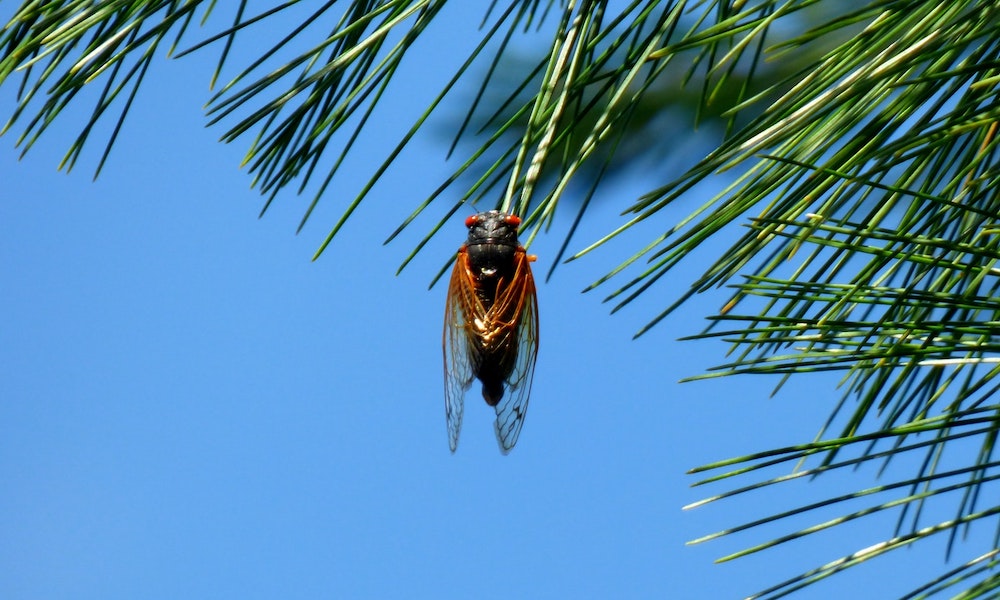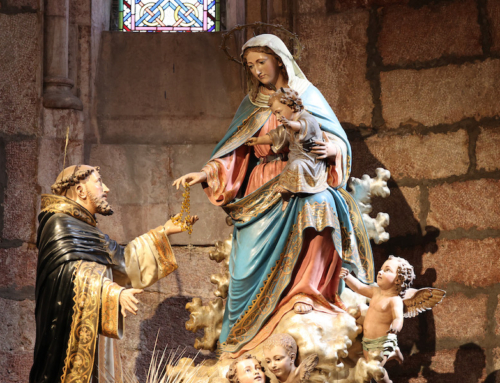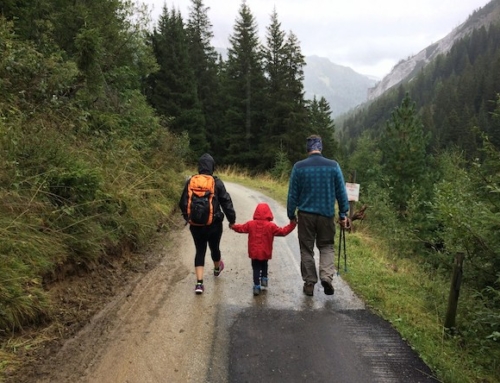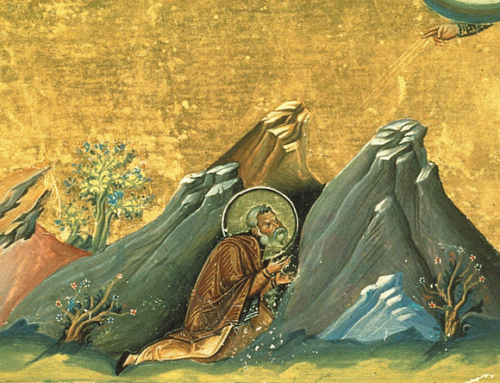Earlier this summer, I was walking in our backyard and I saw one of the brothers picking up cicadas from the sidewalk and putting them back on the trees they had fallen off, and it struck me that the cicadas were a good image for the spiritual life. If King David can write in the Psalms “I am a worm and no man” (Ps 22:6), I have no problem comparing myself to these funny bugs coming up out of the ground.
The cicadas spend the beginning of their life buried in the earth. Then as if they heard the words “seek what is above” (Col 3:1), they emerge from their secure earthen home. They abandon those earthy concerns, their earthly home. This is only the first step though.
They then make their way to a tree so they can climb even higher. Just as St. Paul spoke of the wild olive branch being grafted onto the tree, the cicadas must first firmly attach themselves to the tree before undertaking the next stage of their lives.
After attaching themselves to the tree, they “put away the old self of [their] former way of life . . . [and] put on the new self” (Eph 4:22). In molting, they leave behind their shells, a part of their former selves that is useless and hindering them from growing. They remain the same thing, but also become something new. Something similar happens through the sacrament of baptism. Our old self dies, and a new creation rises from the waters.
But this is not the end, for either the cicadas or ourselves. The cicadas are clumsy creatures. As they try to climb up the tree, seeking things that are higher and higher, sometimes they fall off. Sometimes it is because they are still learning how to walk in their new bodies; sometimes the wind blows them off. Other times it is another cicada or a bird that knocks them off. Whatever the case, they have to get back to the tree.
If they land on their backs, however, they will need help being flipped over before they can even move toward the tree and start the climb again. This is the stage where I saw one of the brothers helping them out. The cicadas, trying their best to right themselves, could not, but they did not know this. They needed help, but they did not expect a giant hand to come out of nowhere and grab them. Naturally, they did not like this either. They assumed the hand was going to eat them or crush them, as opposed to gently lift them up and put them back on the tree.
Of course, God is always at work in our lives, holding us in existence and drawing us towards himself. But sometimes we see this more clearly, usually when we are struggling with something in particular. When we recognize that we have fallen from the tree—from the Church and from Christ—it can be terrifying to acknowledge the need to confess our sins and enter the confessional. We feel the hand of God touching our soul, and it can feel as if we are going to be crushed under the weight of it. But in reality, it is the hand that is consoling and healing us. This is the hand that is supporting us, raising us back up to where we were before we fell. Our God is a God who loves us to the point of dying for us. We should not be afraid to go to him for the forgiveness that he is always willing to give us.
✠
Photo by Laura Gilchrist on Unsplash







